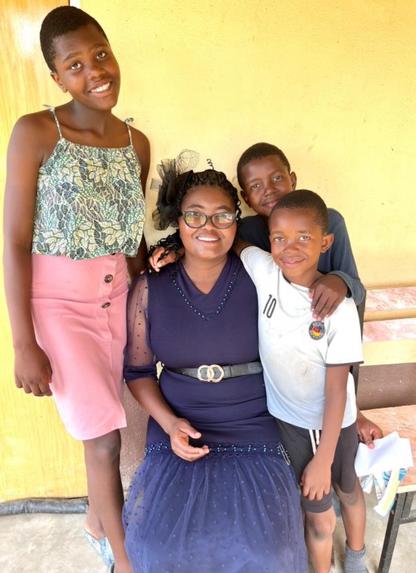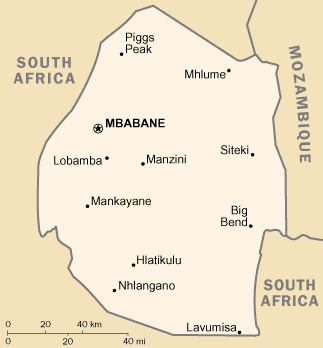WANT TO HELP?
Now we're raising money to help Mrs. Nobuhle in Eswatini


Mrs Nobuhle Fakudze-Magagula
Mrs Nobuhle Fakudze-Magagula lives in Eswatini (formerly Swaziland) and has three children who all go to school. At home, they do a lot of farming and raise chickens for sale.
Several times a week, Mrs Nobuhle visits 90 children/youth who all have different kinds of disabilities. When a family has a disabled child, they usually hide the child away. The father often leaves the family because of the “different” child they have.
Mrs Nobuhle cries when she tells us how she explains for the parents that children are a gift from God. They are precious. They are a blessing. She says that God has given her such love for the disabled children and their families.
Her heart burns for the task of teaching parents to love their children and how to take care of them. For example, she helps them wash clothes and shows them how to make things easier for their disabled child/sibling.
She also helps them with birth certificates, finds aids, paying for hospital visits, gives them diapers and medicine.
The families she visits are often very poor. They often cannot afford to buy the most basic things. Mrs. Nobuhle therefore often brings a chicken or something she has grown. Sometimes it is the only food the family eats that day.
Help disabled children in Eswatini
✅ We are raising money to support Mrs. Nobuhle with SEK 3,000/month to help her in the work she is doing with disabled children in Eswatini.
✅ We are extremely grateful for the collaboration with Swazi Aid who will assist us with the payments to Mrs. Nobuhle.
✅ The start date for the aid operation was July 1, 2025 and will run for 2 years. After that, we hope for a more permanent solution for the work.
🧡 Make a donation today!
Mark the payment "Eswatini".
LENA MARIA & FRIENDS FOUNDATION'S
BANK ACCOUNT
IBAN: SE04 1200 0000 0123 5022 3124
BIC/SWIFT: DABASESX
Name: Danske Bank
Borgmästargränd 10
551 12 Jönköping
Sweden
Eswatini
The Kingdom of Eswatini is an absolute monarchy in southern Africa.
It's the region's smallest state with about 1.4 million inhabitants.
The country was a British protectorate until independence in 1968.
A power struggle between the ruling royal family and opposition parties has been ongoing since independence.
ECONOMY
The country's economy is disastrous with the second worst expected development of all African countries. It is estimated that 60% of the rural population lives below the "poverty line".
HIV/AIDS
The country is considered the country in the world hardest hit by HIV/AIDS. The "life expectancy" has dropped drastically to 49 years. About 100,000 children are orphans due to the death of their parents from AIDS. It is very common for orphaned children to grow up with their grandmothers, without the ability to pay for their children's schooling. It often happens that children live alone without any adults in the home.
EMPLOYMENT - EXPORT
Eswatini is mainly an agricultural country. The majority of the country's inhabitants live in the countryside, where corn is grown. Many also have cows and goats. In the "lowlands" there are large farms/agricultural companies that grow sugar cane and citrus fruits. Some mining occurs. The world's oldest iron mine is said to be located in Eswatini.


